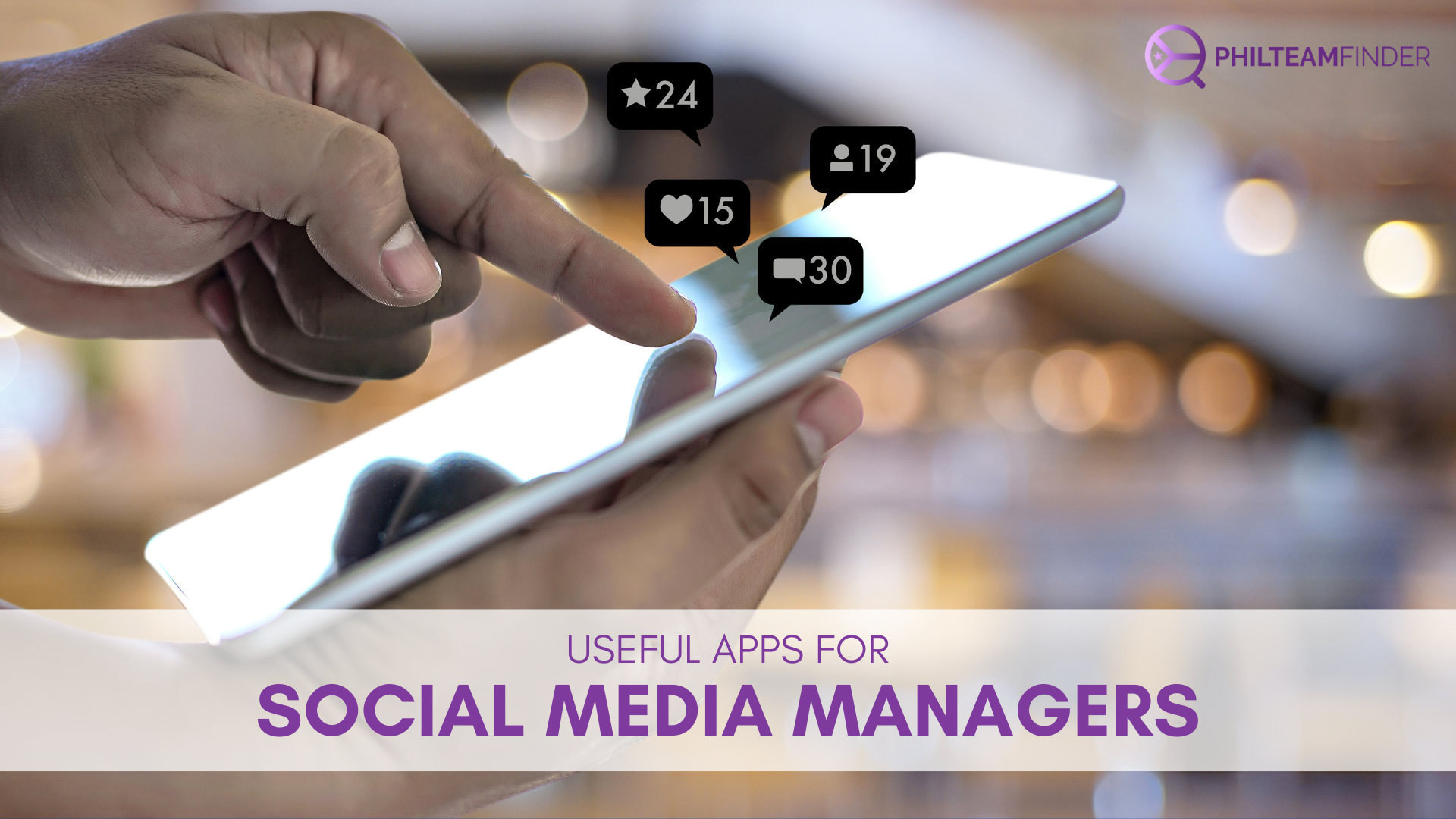We have gathered the best tools a social media manager/specialist can use to be more effective in managing tasks. But what is a social media manager? A social media manager handles and manages the social media accounts of the company or business. They schedule posts, research for posts, and respond to comments, emails, or chats. It generally helps the business grow through social media connections by drawing traffic to the company website.
Many social media apps are available, but which ones should you use? We have listed some things you should consider when choosing the best social media tool for your tasks.
- It has to support a good range of social media accounts. The whole point of using this tool is to ease you with managing the different social media accounts, and being able to work on those accounts in one app would be amazing.
- It should allow you to schedule posts and help plan future posts.
- It should be relatively cheap to get the services.
With these criteria in place, we have narrowed down some of the social media tools you can use to ease out with the social media tasks.
1. Buffer
As we have explained in our previous posts about 5 Basic Apps for Virtual Assistants, Buffer is one of the social media tools we highly recommend for beginners as it is very user-friendly. The interface of this tool is clean and easy to navigate. You will understand and figure out how it works even without watching a tutorial because there is information about what it does in each option or every setting you go to.
When you create and use an account for the first time, Buffer will make a posting schedule for you. Usually, it’s a post for the morning, afternoon, and evening, but you can change this to whatever time you would like the posting schedule to be.
You can schedule posts using the web or using your phone. You can use the Buffer extension on Chrome, Firefox, Opera, and Safari browsers. Just click the Buffer icon on your browser’s tool. It will then pop up a box where you can create a description for your posts. You can add it to the queue or share it now. The Buffer mobile app is also an excellent way to get notifications when all your scheduled posts are published, and you need to add more to the queue.
For an additional cost, you can get Buffer Analyze, a feature that can give you reports regarding engagement metrics or follower demographics.
2. Hootsuite
If you are looking for scheduling, monitoring, and analytics tools, then Hootsuite is your all-in-one tool. We recommend this tool for those handling more social media accounts, as Hootsuite can manage 35 social media accounts.
For scheduling a post, you can either set it up how you like it or use AutoSchedule, which can schedule your posts at optimal times for engagements; these are the times that Hootsuite believes your posts will get more engagement and response.
The main feature of Hootsuite is the analytics, although you need to spend a bit more to get this as a full feature. This feature allows you to get reports about how your posts are doing and analyze them to know where you excel and where you need to focus more.
There is also a Chrome extension available and a mobile app that can schedule and edit posts. There’s a bit more to learn with this app, but it is handy.
3. Loomly
Loomly is an excellent tool for when you need ideas for your posts. It will keep you updated with current events and suggest trends and hashtags.
When you set up a calendar for posting schedules, Loomly will allow you to select what type of industry you want the post ideas to be. When you create a post, it will provide you with post ideas that are related to your selected industry. Loomly can also give you post ideas for upcoming events or holidays. It is a definite must-have if you need continuous inspiration for your posts.
Aside from giving post ideas, Loomly is a scheduling tool that can get connected to Facebook, Instagram, Twitter, Pinterest, LinkedIn, and more.
4. Zoho Social
This tool will also simplify social media management for you. Its timing features let you customize and schedule content for different social media accounts, so you no longer have to switch between apps.
It lets you talk with your team through chat, audio, and video calls, so sharing reports and making plans is easy, informing everyone about updates, strategies, and performance insights.
Zoho Social works with Zoho CRM to ensure efficient tracking of customer interactions, featuring a centralized inbox for all platforms. It also has a handy social listening dashboard to monitor mentions to stay in the loop.
5. Hubspot
Hubspot has every important feature you need in managing social media, including publishing, scheduling, and keeping an eye on keywords for important interactions. It also uses AI to help you create social media posts and suggests the best times to post them when scheduling.
Like Zoho Social, Hubspot also features a social inbox that lets you see all your social interactions in one place and connects with CRM better to understand your conversations for an improved customer experience.
It’s easy to organize your work as you can tag marketing assets and content so you can link your posts to campaigns and see how they perform.
We recommend checking these tools and checking if this is a tool that you are comfortable with and find more straightforward to use. For first-timers, you can explore using these tools as they are primarily free.
Do you have experience with Social Media Management? Apply now HERE

